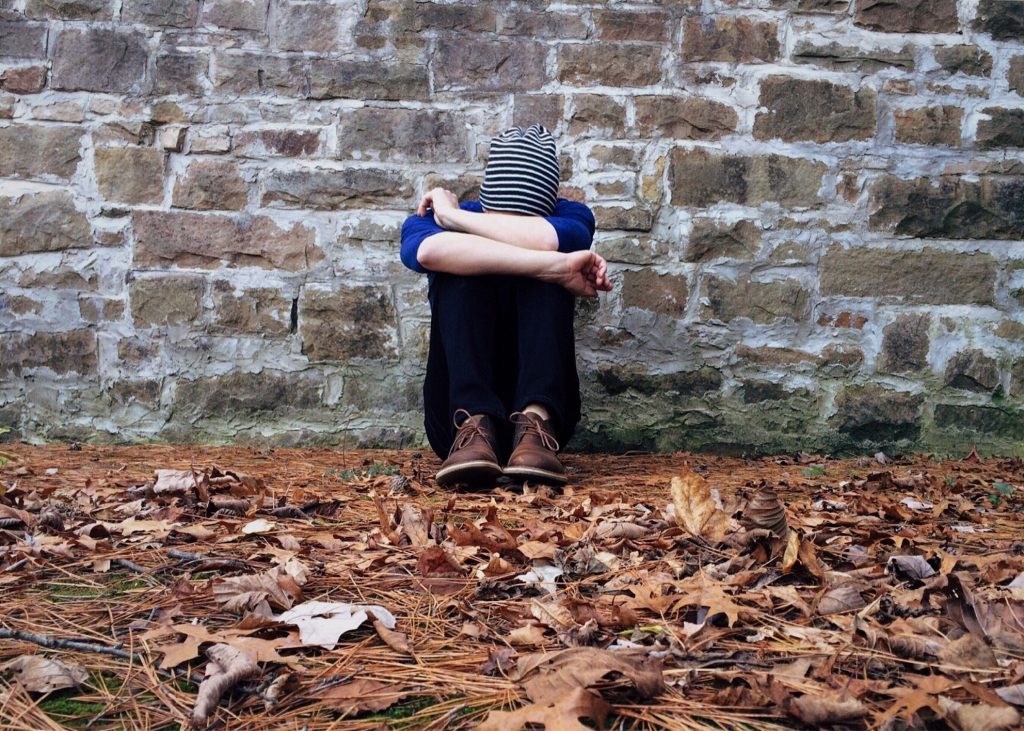
When expat worries become sleepless nights… here’s what to do
“I can’t sleep.” “I don’t sleep through the night.” “I lie awake for hours each night before I fall asleep.”
Do any of these sound familiar to you?
People suffer from disturbed sleep for different reasons, including medical problems (like hyperthyroidism or migraines), emotional distress (such as depression or anxiety), changes in lifestyle (having a baby or any other changes that may influence daily patterns), and general life stressors. Expats tend to face additional stressors that can lead to sleepless nights, like: relocating, being new to a city, moving house regularly, feeling homesick, dwelling on questions like “should I stay or should I go?”, feeling the instability of being in transition… you name it!
Of course, lack of sleep only makes those stressors all the more challenging to deal with. And when you’re sleep deprived, it’s difficult to really enjoy your expatriate experience. Fortunately there are some small steps you can take to try break the cycle.
Here are some pointers to help you sleep better (I know how much you want to!):
1. Establish a regular bedtime and be disciplined about it (yes, weekends included!). Going to sleep and waking up at the same time daily helps stabilize your internal clock.
2. If you are in a transitional phase before or after relocation, try to get into a normal routine as soon as possible. I understand this is not always easy to do – your body may suffer from jet lag and need to adjust to a new time zone; you may not live in your own house yet; or your house may still be full of boxes – but the sooner you can get back to “normal” life, the better you’ll feel and the easier it’ll be to reestablish good sleep patterns.
3. Develop rituals that signal the end of the day; for example: “I will turn off my computer by 7 pm”; “I won’t look at emails after 9 pm”; or “I will put the kids to bed and treat myself to a hot cup of calming herbal tea before heading to bed”. Tell yourself that it is time for rest so that you can start the new day feeling fresh.
4. A bed is for sleeping: don’t eat, work, watch television, read or carry out an argument in bed.
5. Preferably avoid naps. Naps don’t necessarily replace the quality of sleep you get from a full night’s sleep cycle. Some people are able to take naps and feel rejuvenated; for others a nap can sabotage the sleep-wake cycle. If you really can’t resist a nap, then restrict it to a maximum of one hour, at the same time each day.
6. Take a warm bath one to two hours before bedtime. A temperature of 37–38°C is recommended to relax both body and mind.
7. Think of something pleasant. Select an image to focus on while falling asleep. Images commonly used are a burning candle, a favourite vacation scene, clouds, waterfalls, and floating on or sinking into a mattress.
8. Decide on ONE thing that you will start doing from today to improve your sleep. Repeat and finish the sentence: “As of today, I am going to…” It is important to take that first step.
Now, I would love to hear from you. What is the ONE thing you will start doing from today? Which of these pointers is the most useful for you?
If you are still struggling to sleep well after trying these suggestions, then perhaps some counselling may help you deal with your worries and be more relaxed so as to enjoy a deep and restful sleep. If you are at this point in your life, please don’t hesitate to contact us.
Did you like this article? If so, share it with at least one person who wants to know how to sleep better…And do subscribe to my TOP EXPAT TIPS!
FEEL FREE TO USE THIS ARTICLE IN YOUR BLOG OR NEWSLETTER. We ask only that you attribute Expat Nest and include the following: Expat Nest (www.expatnest.com) is a professional online counselling service for expats.
Photo: Megan te Boekhorst / Unsplashed








Hi Vivian,
Interesting tips to deal with sleepless nights.
One of the things I would recommend in order to clearly start the transition between working time and private time is to sit down and observe what is going around you. The moment you start doing so, generally reveals two things: some people are still frantically going through their busy working life – while you just decided to “unplug”- and others are showing the nice side of life already by walking hand in hand, having a nice chat on a terrace, playing with kids,…
If you start observing things, you can’t really do it properly unless you consciously decide to do so. Hence you choose to be aware of the things that surround you and enjoy them… somehow like a photographer who tries to capture instant fragments of life.
Of of those very moving observations is sunset: taking the time (30 minutes or more) to consciously look at the changing colors of the sky and the clouds, the whistle of the birds, the refreshing temperature, … all favors a smooth transition into another time frame and space of one’s own life.
Dear Olivier,
Thank you so much for your post and glad you find the article valuable.
I love the the beautiful picture of the sunset that you made us imagine and what a great example!Your tip on this transition from the working time to the private time is very useful!
Indeed, it is a matter of choice and attitude towards life as in the way you put it: others work frantically and other who walk hand in hand etc. So, let’s choose every single day out attitude and how we want to spend our time, when it is time to ‘unplug’ and when to pause to simply enjoy a beautiful sunset ?
Thanks for sharing!
Kind regards
Vivian
…when worries become sleepless nights…
Dealing with it can be done by re-connecting with your inner feelings. Feelings translate comfort or discomfort / harmony or dysfunction. Recognizing and acknowledging a feeling can help understand WHY you experience it. The WHY enables you to identify VALUES that are – at that time – not enough taken into consideration, maybe at the opposite of local habits and traditions or simply temporarily out of balance because of the accommodation process you go through. Whether in management and leadership or in the case of cross-cultural adjustment, it is important to stay clear with your own values because they determine WHO you are.
There’s no reason to go against WHO you are because no one of us is likely to compromise on our core personal values. However, developing strategies to interact adequately in a culturally different environment only requires the ability to develop soft-skills to navigate more effectively: That’s about HOW to interact.
It is not my intention to minimize the importance of adjusting – or developing new- soft-skills but it is far more easy to do so than to change our values. Even when expats have a great time abroad and expand their cultural understanding and flexibility they often remain loyal to their initial core values.
It is tempting to share personal experience and give you advice but I will share one of my clients tips. When she arrived in Belgium with her husband they both decided of a coded word to signal to the other that a certain situation was about to become unacceptable, unbearable, and that it could be a reason enough to consider heading home before the end of their set assignment.
Because of that they also shared something that I believe is essential when living together (abroad or not): maintain a open communication on whatever is moving you. (positively or negatively) . I am rather silent and will naturally prefer to keep thing for myself and try to digest them but I have to admit that I benefited from opening up to share more of my own perceptions.
Hope this helps
A really great article Vivian. I can completely understand why many expats experience sleepless nights. They have so much to deal with and sudden changes can really influence sleeping patterns. People may think sleep isn’t essential and that not getting enough isn’t a big deal. However, a lack of sleep, especially over a long period, really does start affecting your overall health. I’ve never been a fan of naps because they really do disrupt a good sleeping routine and for exapts it may be very tempting because of time differences.
Dear Ryan,
Thank you so much for your feedback and glad you find the article valuable. Indeed a lack of sleep over a long period of time can affect the overall health and makes people feel they are in a vicious circle of tiredness and lack of sleep.
Thanks for sharing your thoughts!
Kind regards
Vivian